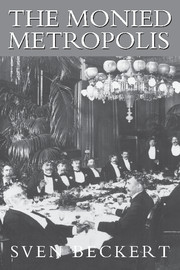Book contents
- Frontmatter
- Dedication
- Contents
- Maps, Graphs, and Illustrations
- Acknowledgments
- Abbreviations
- The Monied Metropolis
- Introduction
- Part I Fortunes, Manners, Politics
- Part II Reluctant Revolutionaries
- 4 Bourgeois New Yorkers Go to War
- 5 The Spoils of Victory
- 6 Reconstructing New York
- Part III A Bourgeois World
- Epilogue
- Notes
- Index
6 - Reconstructing New York
Published online by Cambridge University Press: 05 July 2014
- Frontmatter
- Dedication
- Contents
- Maps, Graphs, and Illustrations
- Acknowledgments
- Abbreviations
- The Monied Metropolis
- Introduction
- Part I Fortunes, Manners, Politics
- Part II Reluctant Revolutionaries
- 4 Bourgeois New Yorkers Go to War
- 5 The Spoils of Victory
- 6 Reconstructing New York
- Part III A Bourgeois World
- Epilogue
- Notes
- Index
Summary
When President Andrew Johnson signed the Thirteenth Amendment to the Constitution in 1865, and slavery was outlawed in North America, the major political and social fault line of the United States suddenly disappeared. Emancipation removed what until then had been the most important reference point for the political discourse of northern society. Though New York's economic elite had been aware of the social changes fostered by economic expansion in the antebellum North, they had linked the problem of proletarianization in one way or another to slavery: Some had believed that an expanding slave economy would provide for prosperous employment of northern wage workers while others had held that the destruction of slavery would reinvigorate social and geographical mobility for temporary proletarians. Yet by the late 1860s and early 1870s, both the republic of independent producers, envisioned by Abraham Lincoln along with New York manufacturers, and the commercial capitalism based on slavery championed by August Belmont and many of the city's mercantile elite were rapidly faltering on the shoals of industrialization.
Indeed, social tensions arising from the blossoming of capitalism sharpened considerably in the wake of the Civil War. During the 1860s, rapid economic development and novel political arrangements mitigated these strains, but workers' collective action eventually forced upper-class New Yorkers to come to terms with the emerging new world. This reorientation was at first careful and tentative, but by the early 1870s, New York's merchants, industrialists, and bankers began to reconsider the meaning of proletarianization and the role of the state in society, with dramatic results not only for class relations in the North but also for Reconstruction and the fate of the freedpeople in the South.
- Type
- Chapter
- Information
- The Monied MetropolisNew York City and the Consolidation of the American Bourgeoisie, 1850–1896, pp. 172 - 204Publisher: Cambridge University PressPrint publication year: 2001



